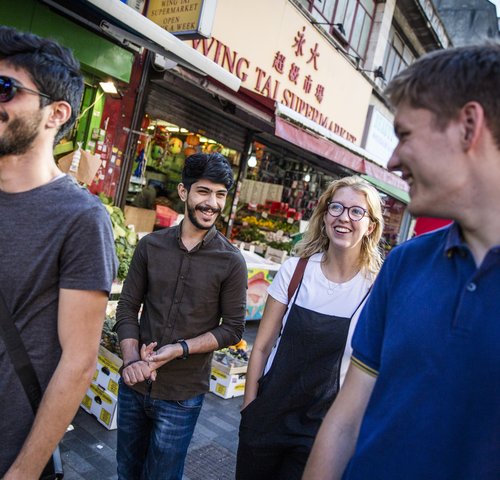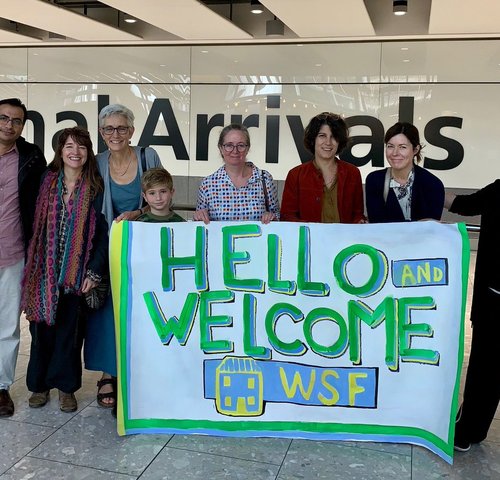Language
USEFUL RESOURCES:
Guide to teaching ‘Community ESOL’
Guide to Working with Interpreters
Learning English
One of the most important priorities for a refugee family in settling into their new community will be learning English. And a major task for a sponsorship group is to arrange both formal and informal English language learning for all members of the family.
To meet the requirements of the Home Office for ESOL (English for Speakers of Other Languages) you will need:
- Suitably qualified ESOL tutors willing to provide 8 hours per week of English language tuition for up to 12 months
- This teaching leading to formal English language qualifications
- Opportunities for the refugee family to learn English through informal means such as conversation sessions
Community ESOL
You may find that ESOL provision in your area is unsuitable or unavailable. This was the experience of Croeso Abergwan, a sponsorship group based in rural Pembrokeshire, Wales. But they rose to the challenge and developed their own ‘Community ESOL’ approach. Their ESOL team members have written a guide to their methods, which you can Download Here.
Interpreters
You must provide interpreting services as required for 12 months from arrival. In the first 2-3 weeks you will likely need interpreters to be on hand full time.
What language?
The majority, though not all, families who arrive through Community Sponsorhsip, are from Syria, and speak Arabic. However, some families speak another language, such as Kurdish or Farsi. You will be asked which languages you can provide for in the Home Office application, and matched with a family accordingly.
Consider:
- Finding volunteer interpreters. Mosques and local groups may know members of your community who are willing to act as Arabic interpreters.
- Using available interpreters. Services like Job Centres and the NHS have interpreters but may need advance notice to provide them at appointments.
- Paying for professional interpreters.


